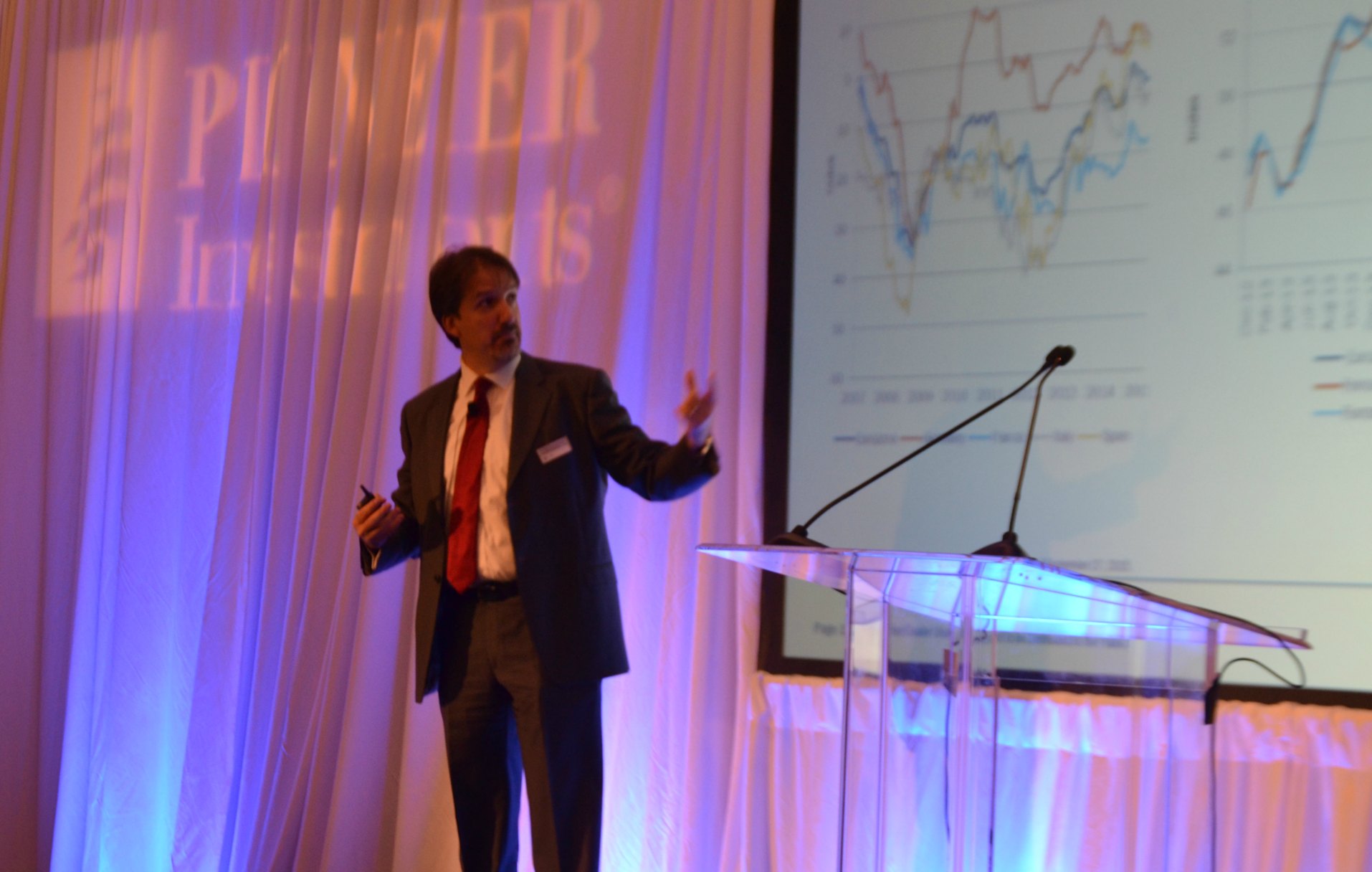Even if Pioneer Investments is more positive about China than the consensus, the firm believes growth must be found in other markets. Piergaetano Iaccarino, Head of Thematic Equity for Pioneer Investments, shared his thoughts at the investment forum “Embrace New Sources of Return” held recently in Miami: “China is shutting down one of its economic engines, and starting another.” This transition from fixed investment, exports, and government control, to an economy oriented to domestic consumption, services, and the private sector, will take time, but in China “there are still available instruments” claims Iaccarino referring to the forex exchange controls.
Debt and Deflation
Iaccarino determines that in the coming years, growth will be higher in developed economies, “where we are seeing a better growth outlook than for the 2007-2014 period. In emerging markets, the situation is reversed.”
Economies operate in an environment ruled by two major trends: financial leverage and deflation. “Nations do not only face the repayment of outstanding debt, but also their obligations to pay pensions and health costs of a population which is ageing quickly.” Japan is not the only country with this problem, the United States has a similar debt level once these future obligations are incorporated, “and the emerging markets are not immune to this problem because they have doubled their debt in recent years, with half of that debt issued in hard currencies (euro and dollar).
The other major trend mentioned by the expert is deflation, which represents an added problem for the most indebted countries. “Central banks of developed countries do not have the rate cutting tool readily available; They can print money (QE) or manipulate the exchange rate,” although the effectiveness of these measures is questionable.
So, Where is Growth to be Found?
“Growth is ‘hidden’. It exists but it’s hidden,” claims Iaccarino. The United States, with the strength of its labor market, represents an opportunity. Employment generates consumption, to which a favorable demographic picture must be added. “Perhaps the only negative point in the US is political, with the uncertainty arising from the elections next year.” Even the exposure to exports towards China is correct, as they are not as relevant, representing 1% of GDP, but the trend is growing, however “and the Fed knows it, so that the evolution of the Chinese economy weighs increasingly in monetary policy decisions in the United States.”
According to the expert, Japan represents the eternal promise. “Fixing Japan always takes longer than expected. Culturally, the process of reaching a consensus is painfully slow, but once matters have been clarified, action is usually rapid. “The reforms presented by Shinzo Abe are now in full debate in Congress. The TPP (Trans-Pacific Partnership) is very important for Japan, which will have to introduce certain reforms touching on immigration and corporate governance. “In this regard, it has already achieved a lot, with a penetration of 50% of independent board members in listed companies, compared with 16% a few years ago. Valuation and momentum support investment in Japan. “
Should Emerging Markets be Avoided Entirely?
While it’s true that emerging markets will see less growth, they should not be avoided entirely. “Some countries are more vulnerable than others to external shocks. We must find countries with good foreign exchange reserves and a healthy current account balance. You need to be very selective, “claims Iaccarino.
Another factor to consider is the credibility of reforms and the stability of the institutional framework. “India and China are in a much better position than Russia and Brazil.”
What to do?
Perhaps the key to medium-term positioning is to manage volatility. “Volatility is increasing, especially the volatility of volatility, creating stress in the market. Volatility becomes a risk if you are forced to sell in times of high volatility; however, if you do not have that time pressure to sell, it becomes an opportunity”.
Volatility feeds on a number of factors: the debt deleveraging process, an environment of below potential growth, in both developed and emerging markets, also coupled to the central banks’ lack of tools. In turn, there is the problem of liquidity in the market, directly derived from increased regulation of the financial sector.
All this creates opportunities, although “potential is limited, both in equities and in fixed income; the important thing is to hedge tail risks well.”
In credit, the expert mentions very selective opportunities in securities overly affected by the crisis in the energy sector. Pioneer Investments’ Head of Thematic Equity, has a more favorable opinion of equities, since there is a component of positive growth in developed markets, which is feeding into corporate earnings. “In Europe, the cycle lags behind the United States, but it’s improving. Valuation of the stock markets may be more questionable, but some things are attractive. The biggest risk is volatility, or risk perception, which punishes stock markets every time there is an episode of illiquidity.”
Iaccarino adds that technical factors particularly support the Japanese market, which is seeing a lot more domestic money in their stock markets, both by pension funds and by individuals, a group which now enjoys tax benefits for investing in stock markets.
